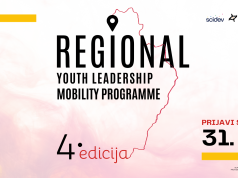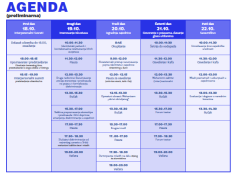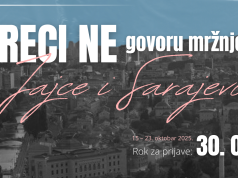 The future of Southeast Europe depends on targeted and consistent action to develop effective civic structures and integrate the region into Euro-Atlantic political, economic and security spheres. This requires consultation and collaboration between international and regional policy-makers. Initiatives that build confidence among citizens in the region are a prerequisite for peace and stability, and ultimately for regional integration and economic prosperity. Underlying this project is the belief that the driving force for the continuation of the political, social and economic reform and the success of the region’s EU integration are qualified young professionals with international experience.
The future of Southeast Europe depends on targeted and consistent action to develop effective civic structures and integrate the region into Euro-Atlantic political, economic and security spheres. This requires consultation and collaboration between international and regional policy-makers. Initiatives that build confidence among citizens in the region are a prerequisite for peace and stability, and ultimately for regional integration and economic prosperity. Underlying this project is the belief that the driving force for the continuation of the political, social and economic reform and the success of the region’s EU integration are qualified young professionals with international experience.
In an effort to contribute to the reform process in Southeast Europe, the TRANSFUSE Association and the College of Europe jointly launched a programme in 2006 for young people from the region, as well as from the rest of Europe, who aspire to play an active role in the future of their countries. (For details on the previous editions, see Previous Editions). The Programme runs over a ten-month period and aims to transmit knowledge about the EU and its relation to the region, to stimulate the leadership and professional skills of participants and to encourage the exchange of views.
The European Fund for the Balkans has been generously financing the programme since 2008 and since 2009, has been organising it jointly with the College of Europe and the TRANSFUSE Association.
The 2012/2013 Programme will consist of the following components:
- Two-week Summer Academy in Austria (Vienna & its surroundings) and Slovakia (Bratislava) in September 2012: the curriculum includes topics related to the European Union and the development of its relations with Southeast Europe, as well as wider issues of international and economic relations. Practical training components focusing on negotiations, project management and presentation skills provide participants with essential leadership qualities.
- Group projects, between November 2012 and March 2013: The participants will work together in small groups to develop and implement joint activities including an event in Southeast Europe.
- Five-day Spring Seminar in Belgium (Brussels/Bruges), in April 2013: The programme includes working visits to the EU institutions and NATO in Brussels and classes in the campus of the College of Europe in Bruges.
The Programme is led by an Academic Dean, who guides the participants through the different aspects of the Programme. The working language of the Programme is English.
Certificates are awarded to participants upon successful completion of the Programme.
Only 30 selected applicants are invited to participate. Their participation in the Programme is sponsored by the European Fund for the Balkans. For information on the application procedure and sponsorship details see ‘How to apply’ and ‘Practical information’ pages.











